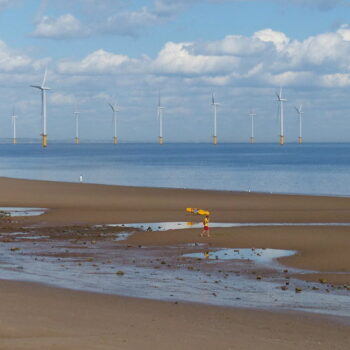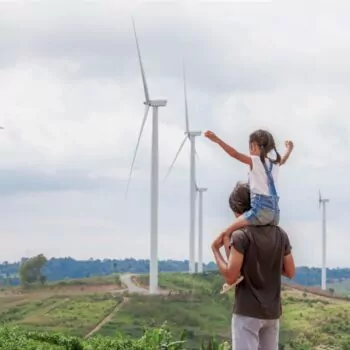The past few years have demonstrated that policymakers can no longer see fairness as separate from Europe’s green transition. Fairness is no longer understood to be only about workers, jobs, and compensation, but also about people, communities and agency. Unless the EU significantly progresses its fairness and green agendas together, it will fail to advance them individually.
A shift in scope and importance
The ‘just transition’ has been a key horizontal dimension of the European Green Deal since its inception in 2019. The proposal of a Just Transition Fund (JTF) in 2020 focused on protecting workers in fossil fuel intensive regions. Yet, issues of broader social fairness gained special traction after the French yellow vest protests in 2018 – sparked by a fuel tax and wider inequality concerns.
Since then, the COVID-19 pandemic, war in Ukraine, and subsequent cost of living crisis have had many profound consequences. A crucial one for European law-making has been the convergence of “end of the month” and “end the world” challenges previously seen in opposition. The dependency on fossil fuels not only fuelled climate change but also the energy costs for European industries and communities. It became evident that access to renewable energy, heat pumps and insulation could provide protection against both.
This shifted European law-makers’ focus from workers to people and communities. It forced them to consider the distributional impact of climate and energy policies as vital for public buy-in and policy design, rather than a side effect to manage.
European social & green progress
Social progress in Europe is seen primarily as a national – rather than EU-level – competence. Nonetheless, in 2017, the Juncker Commission launched the European Pillar of Social Rights to create a fairer and more social Europe. The Von der Leyen Commission turned this initiative into an action plan and proposals such as the Directive on Adequate Minimum Wages. However, there is still a long way to go.
In 2021, the Social Climate Fund (SCF) brought promising developments, introducing Europe’s first temporary direct income support and definition of mobility poverty. Taken together, the SCF and the JTF constitute Europe’s main social support for its green transition.
However, the EU’s action remains largely focused on financial compensation, which is too transactional to build social buy-in and confidence in the fairness of the transition.
Fairness and equality necessary for public support
Inequality is on the rise in the EU. While Europeans overwhelmingly support Europe’s green transition, more than half believe that the energy transition will fragment society by putting some groups at an advantage at the expense of others.
Unaddressed, these concerns risk eroding public support for the transition. Research finds that support for climate policies depends greatly on how fair they are perceived to be. In turn, populists use fears of inequality as a tactic to delay climate action. This isn’t novel, but as Europe’s climate agenda shifts from planning to implementation on the ground, it becomes paramount that fairness meaningfully accompanies climate action.
What next
Although compensation to the most affected is necessary, it is not sufficient to muster public support and drive a just and fair transition. The next stage of Europe’s transition will need to improve fairness and perceptions of fairness, give people agency, and be made possible by sufficient social protection.
- European leaders will need to demonstrate what a fair transition looks like, building an evidence base on how climate action is already delivering for the working class and the most vulnerable.
- As citizens bear the brunt of one shock after another, giving people agency will be crucial to sustaining and accelerating the climate transition. This means providing access to affordable solutions and empowering affected groups to have a say over the decisions that affect their lives.
- Finally, it will be necessary to establish a social protection floor that not only enables citizens to take up new opportunities but also shelters them from future crises. It would both support people in acquiring the skills they need for the green jobs that are coming and shelter them from future crises.
Acknowledgement: We would like to extend our sincere thanks to all participants of the European Green Deal & Society Workshop series. Without their contributions and insights, this account would be incomplete.
Read other blogs in our state of the Union series:


